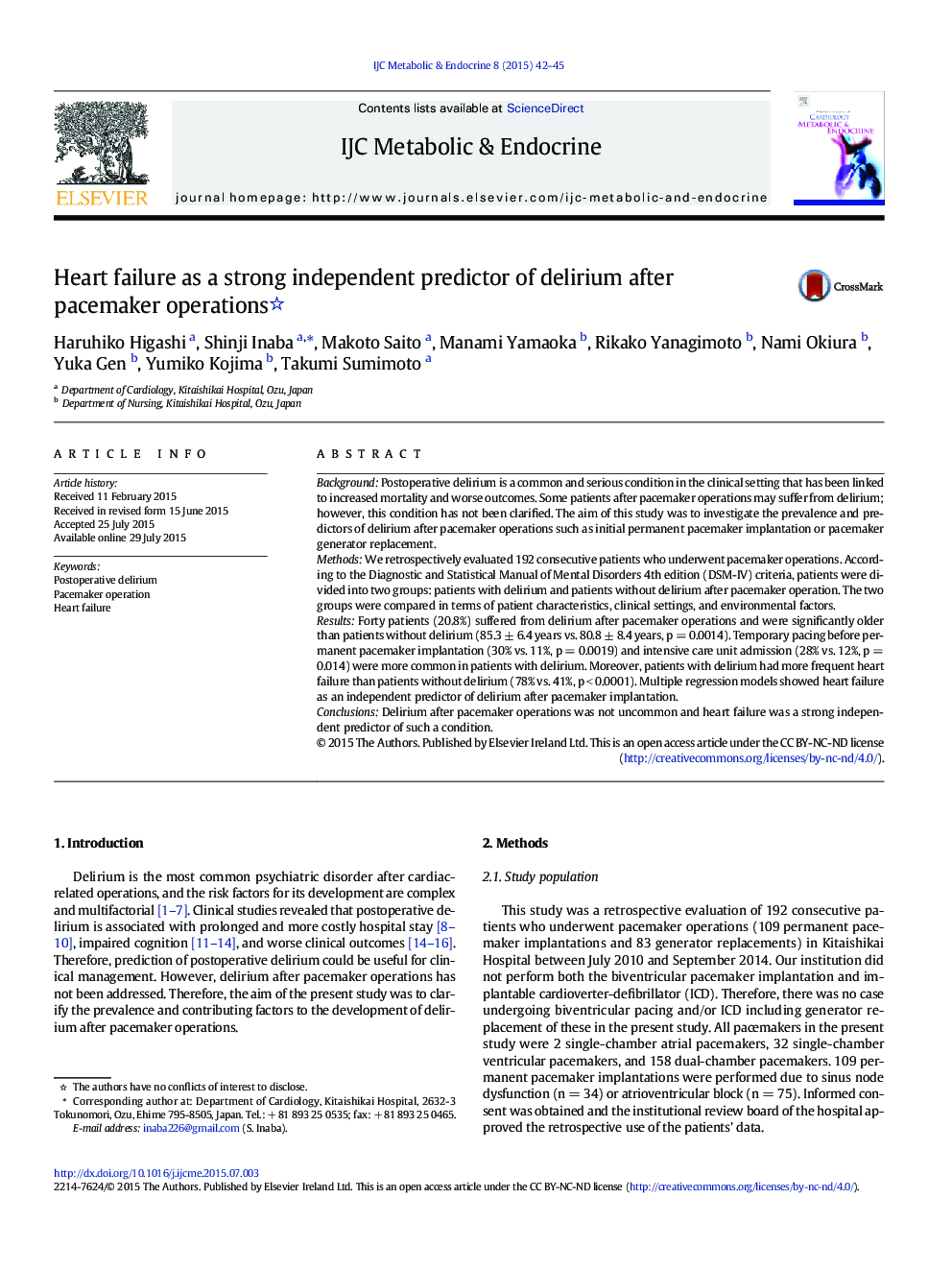| Article ID | Journal | Published Year | Pages | File Type |
|---|---|---|---|---|
| 2927232 | IJC Metabolic & Endocrine | 2015 | 4 Pages |
BackgroundPostoperative delirium is a common and serious condition in the clinical setting that has been linked to increased mortality and worse outcomes. Some patients after pacemaker operations may suffer from delirium; however, this condition has not been clarified. The aim of this study was to investigate the prevalence and predictors of delirium after pacemaker operations such as initial permanent pacemaker implantation or pacemaker generator replacement.MethodsWe retrospectively evaluated 192 consecutive patients who underwent pacemaker operations. According to the Diagnostic and Statistical Manual of Mental Disorders 4th edition (DSM-IV) criteria, patients were divided into two groups: patients with delirium and patients without delirium after pacemaker operation. The two groups were compared in terms of patient characteristics, clinical settings, and environmental factors.ResultsForty patients (20.8%) suffered from delirium after pacemaker operations and were significantly older than patients without delirium (85.3 ± 6.4 years vs. 80.8 ± 8.4 years, p = 0.0014). Temporary pacing before permanent pacemaker implantation (30% vs. 11%, p = 0.0019) and intensive care unit admission (28% vs. 12%, p = 0.014) were more common in patients with delirium. Moreover, patients with delirium had more frequent heart failure than patients without delirium (78% vs. 41%, p < 0.0001). Multiple regression models showed heart failure as an independent predictor of delirium after pacemaker implantation.ConclusionsDelirium after pacemaker operations was not uncommon and heart failure was a strong independent predictor of such a condition.
